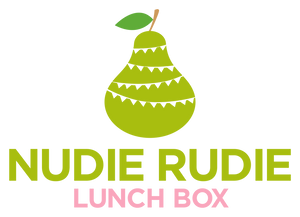· By Julia Boase
What to Choose for your Child's Sandwiches - Is Butter or Margarine a Healthier Choice?
It’s hard to find a more confusing spot when it comes to choice in the supermarket than the butter isle. Salted butter, unsalted butter, margarine, butter-margarine blends, low fat margarines, canola, olive oil or milk free! What to choose? Let’s break it down to help you make a better choice for your family.
All fats and oils are made up of blend of different fats with different chemical structures. To make things simple we categorise a fat based on the predominant type of fat it contains, either “saturated” or “unsaturated”. Unstaurated fats are further broken up into “mon-unsaturated” and “poly-unsaturated” (Omega 3 and Omega 6).
I think most people are aware that there is a link between heart health and dietary fats. For many years we thought that saturated fat increased your bad cholesterol (or your LDL cholesterol) which in turn was bad for your heart health. More recent evidence has suggested that it’s actually bit more complicated than this. Eating saturated fats not only increases your bad or LDL cholesterol, but it also raises your good or HDL cholesterol. Raising your HDL cholesterol may help off set the effects of raising your bad cholesterol and consequently saturated fat may not be quite as bad as we once thought. Please note though, that this does not mean that we should be eating lots of saturated fat, it’s perhaps just not as bad as we once thought it was. Different types of saturated fat will also have different effects on your cholesterol, for example in recent years we’ve become aware that the fat found in dairy products seems to have a more “neutral” effect on heart health and the recommendation to consume reduced fat dairy has decreased unless you come from a high risk group (you can read more here).
Whilst the full picture regarding saturated fat and heart health remains a little foggy what is clear is that the best dietary pattern for heart health is one where the majority of dietary fat comes from either mono or polyunsaturated fats and oils (seeds, nuts, fish, avocado, olives). In fact some of the strongest evidence is actually more for monounsaturated (think olives, nuts and avocado) than polyunsaturated fats. Most importantly it appears that it’s your overall dietary pattern that will have the most effects on your heart health - that is consuming predominantly mono and poly unsaturated fats, limiting alcohol intake, consuming quality protein as well as plenty of vegetables and wholegrains, and lets not forget we all need some physical activity too.
So what then do we choose to use on our kid’s sandwiches ?
Butter is a saturated fat. It’s minimally processed and made from just milk and salt. Unsalted is often preferred for baking, as a true chef will prefer to adjust the salt content in the final recipe by simply adding salt.
Margarine is a manufactured product made from a variety of sources (most commonly canola, sunflower, safflower or olive oil - although be aware that all are blends of a variety of oils) with added colouring and fortified with vitamins A and D (naturally occurring in butter). “Light” margarines are simply whipped margarines that have more water than fat whipped into the final product and are therefore lower in energy (calories) and fat.
Given what I’ve said above about wanting to consume mostly monounsaturated fats, you might be thinking that an olive oil based margarine is the way to go. However, the quantity of olive oil in margarine is not high (18%) and as they are blended with other vegetable based oils, it’s not the same as consuming extra virgin olive oil.
Personally if you’re not a family that consumes a lot of bread or toast with spreads, then it would be perfectly fine to opt for butter when you do. If you consume a little more, or you like your butter softened, then I’d recommend using an olive oil or butter/olive oil blend spread (but keep in mind that you’re not just consuming butter and olive oil as all margarines are blends). It also pays to consider how you are using fats overall in your diet. I’m a big proponent of using the right oil for its culinary purpose. Butter lends a nice flavour to baked goods, so I use it predominantly here in our family’s diet. For every day cooking I use an extra virgin olive oil and for toast or sandwiches we use a light olive oil based margarine (or forgo it altogether if it’s a sandwich with lots of fillings and doesn’t really require it). And above all consider your family’s diet as a whole. It’s time that we get beyond looking at individual nutrients and really focus on quality of your overall diet - that is minimally processed foods, plenty of plant based foods (vegetables, fruit, whole grains), quality protein and dairy and a sprinkling of “fun foods”.
